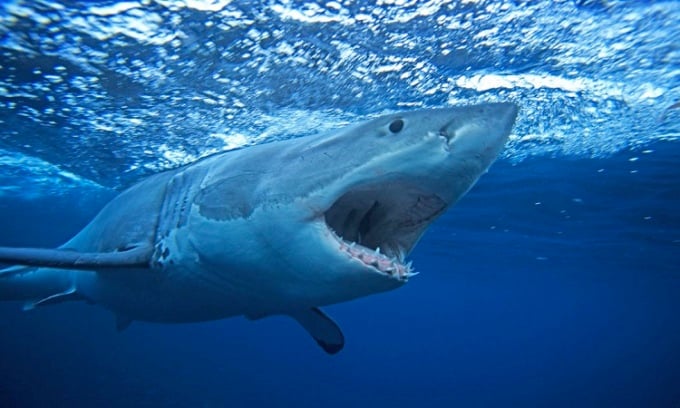A shark in Australia attacked and likely killed a surfer after biting him multiple times and dragging him underwater.

Victim Simon Baccanello was attacked by sharks three times before going missing. Photo: RNZ
Witnesses said the shark returned to the victim three times, an unusual behavior in a rare attack, according to Live Science . Simon Baccanello, a 46-year-old teacher, disappeared while surfing off the coast of South Australia on May 14. He was one of more than a dozen surfers in the water at the time. A resident named Jaiden Miller witnessed the attack: "I saw Baccanello's surfboard upside down, which means he was underwater. He was struggling to get back to the surface. We saw the shark thrashing around behind him. It clearly let go and came back and attacked him a third time."
South Australian police said in a statement on May 15 that the victim was dead after rescuers failed to find a body and found only a piece of wetsuit and a white polystyrene sheet believed to be surfboard material. Fatal shark attacks are extremely rare, with only five fatal shark attacks worldwide in 2022, according to data from the Florida Museum.
Most shark attacks are the result of mistaken identity. From below, swimmers and surfers are almost indistinguishable from seals, the sharks’ favorite prey, according to research published in 2021. In most cases, the shark will realize that humans are not food and swim away. Blood loss after an attack is the main cause of death.
Gavin Naylor, director of the Florida Shark Research Program at the Florida Museum, says it's unusual but not unheard of for a shark to attack a person multiple times. "If the bite is predatory or territorial, they may strike first and then return to bite again," Naylor explains. "The reason why a shark returns to its victim varies by species. For example, great white sharks (Carcharodon carcharias) often ambush seals with a surprise bite from below, then wait for their prey to bleed out and become weakened before returning. (Seals are formidable animals that can injure sharks, so great whites will stay away until their prey is weakened.)"
The animal’s emotional state also affects how aggressive it is and how likely it is to attack again. According to Naylor, if a shark is agitated and is feeding in an area where there are other sharks competing for limited food resources, it may become more aggressive and persistent.
An Khang (According to Live Science )
Source link



















































![[Maritime News] More than 80% of global container shipping capacity is in the hands of MSC and major shipping alliances](https://vphoto.vietnam.vn/thumb/402x226/vietnam/resource/IMAGE/2025/7/16/6b4d586c984b4cbf8c5680352b9eaeb0)













































Comment (0)